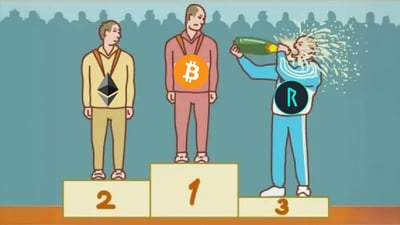
General
The Roots of the American Revolution are Surfacing Today
July 8, 2022
Bill Still released The Monetary Masters documentary in 1996. It examines the concepts of money, debt, and taxes. It reviews the history of central banking, fractional reserve banking, and the US Fed. There’s even a section that goes over the root cause of the American Revolution (7 min).
Bill uses Benjamin Franklin’s own words to dispel the notion that “taxation without representation” led to the revolution. It might have been the straw that broke the camel’s back, but it wasn’t the cause. I took the liberty of paraphrasing the video for you here:
By the mid 1700’s the British empire was nearing its height of power around the world. Since the Bank of England was created, Britain had fought 4 costly wars in Europe. To finance these wars the British parliament borrowed heavily from the bank. Consequently, the British had to raise taxes on their American colonies just to make interest payments on the debt.
In America it was a different story.
In the mid-1700’s, pre-revolutionary America was not indebted to a privately owned central bank but still relatively poor. There was a severe shortage of precious metals to trade for goods, so the early colonists were forced to experiment with printing their own paper money. Benjamin Franklin was a big supporter of the colonies doing this.
Called colonial scrip, the endeavor was successful. It provided a reliable medium of exchange and it also helped provide a feeling of unity between the colonies. Remember, colonial scrip was just paper money. Debt free money printed in the public interest and not backed by gold or silver. It was a totally fiat currency.
One day, Bank of England officials asked Franklin how he would account for the newfound prosperity of the colonies. Without hesitation he replied,
That is simple. In the colonies we issue our own money. It is called colonial scrip. We issue it in proper proportion to the demands of trade and industry to make the products pass easily from the producers to the consumers. In this manner, creating for ourselves our own paper money, we control its purchasing power, and we have no interest to pay to no one.
Benjamin Franklin
This was common sense to Franklin. But you can imagine the impact it had on the Bank of England. America had learned the secret of money and that genie had to be returned to its bottle as soon as possible.
British parliament hurriedly passed the Currency Act of 1764. This prohibited colonial officials from issuing their own money and ordered them to pay all future taxes in gold or silver coins. It forced the colonies onto a gold and silver standard. For those who still believe a gold or silver standard is the answer for America’s current monetary problems, look what happened to America after that.
In one year, the conditions were so reversed that the era of prosperity ended, and a depression set in, to such an extent that the streets of the colonies were filled with unemployed.
Benjamin Franklin
Franklin claims that this was even the cause for the American Revolution.
The colonies would gladly have borne the little tax on tea and other matters had it not been that England took away from the colonies their money, which created unemployment and dissatisfaction. The inability of the colonists to get power to issue their own money permanently out of the hands of George III and the international bankers was the PRIME reason for the revolutionary war.
Benjamin Franklin
By the time the first shots were fired in on April 19th, 1775, the colonies had been drained of gold and silver by British taxation. As a result, the continental government had no choice but to print money to finance the war. At the start of the revolution the US money supply stood at 12 million dollars. By the end of the war, it was nearly 500 million. The currency was virtually worthless.
Today, those who support a gold standard point to the period during the revolution to demonstrate the evils of a fiat currency. But remember, the same fiat currency had worked so well 20 years earlier during times of peace, that the Bank of England had parliament outlaw it.
The American Revolution wasn’t a one-day event that occurred on July 4th, it was a movement that took about two decades to culminate. Over that time, the colonies developed a laundry list of complaints towards the king that are summarized in The Declaration of Independence. Americans were tired of being forced against their will by the British monarchy and said enough is enough.
We find ourselves in a similar situation today. People are fed up with the overarching reach of governments around the world. They’ve had enough of ridiculous regulations and the laws of science changing based on politics. There were weekly marches in France last year, the trucker demonstration in Canada this winter, the Sri Lanka uprising this spring, and now the farmers dissent in the Netherlands. Yet the mainstream media coverage is nil compared to the BLM protests. Why is that? I suppose the saying is true:
The Revolution will not be Televised
Footage of these protests and alternative news articles are getting around though, just like pamphlets in the American colonies. The pamphlets covered all kinds of topics the mainstream newspapers ignored. They were the social media of the day and played a big role in the revolution by circulating thoughts and ideas that questioned the legitimacy of the English monarchy. Today, there is a plethora of subversive material on social media that questions all governments around the world. It’s gaining momentum so I expect it to continue.
Meanwhile, we’re in the middle of the decentralized revolution.
The invention of bitcoin was the birth of digital property. The first form of property that can’t be stolen by people with guns because pointing a gun at computer code is futile. This code is protected by a decentralized network of computers. It’s the decentralized nature of bitcoin that makes it extremely hard (if not impossible) to counterfeit, steal, or control. Whereas centralized banking can easily counterfeit, steal, or control the money they issue. Which they always end up doing and impoverishing society in the process.
History is littered with so many examples of this and we’re living through it yet again. Even gold standards fail when they become corrupted, and as the American revolution shows, a gold standard can prove to be disastrous to an economy.
Central banking simply doesn’t work. Decentral banking will work.
All that’s required is a fundamental change in the way people think and do. Like the agricultural, industrial, and digital revolutions, people inevitably changed how they viewed and interacted with the world. No one forced them to change, these were peaceful revolutions. Change happened naturally because the benefits were self-evident. But it didn’t happen in one day, it took time.
We’ve been in the decentralized revolution for 13 years now. The seeds have been planted, the movement is gaining steam, and everyone has seen it on their computer. Yet, there is no committee behind it, no central authority overseeing it. It’s grass roots, self-regulated, and spans the globe.
The Revolution will not be Centralized
Thank you for reading.
I’m the founder of Youxia Crypto, an asset management company specializing in crypto. I can help you buy and sell precious metals too. I believe crypto is more than just about trying to make money, it’s about creating freedom for oneself and the rest of the world. I’m a contrarian, voluntaryist, and proponent of Austrian Economics. I enjoy downhill skiing, scuba diving, live music, yoga, and traveling.
The intended use of this material is for informational purposes only and is not intended to be an offer or solicitation for the sale of any financial product or service or a recommendation or determination that any investment strategy is suitable for a specific investor. Investors should seek financial advice regarding the suitability of any investment strategy based on the objectives of the investor, financial situation, investment horizon, and their particular needs. This information is not intended to provide financial, tax, legal, accounting or other professional advice since such advice always requires consideration of individual circumstances. The investments discussed herein are not insured by the FDIC or any other governmental agency, are subject to risks, including a total loss of the principal amount invested. Past performance is no guarantee of future returns.



